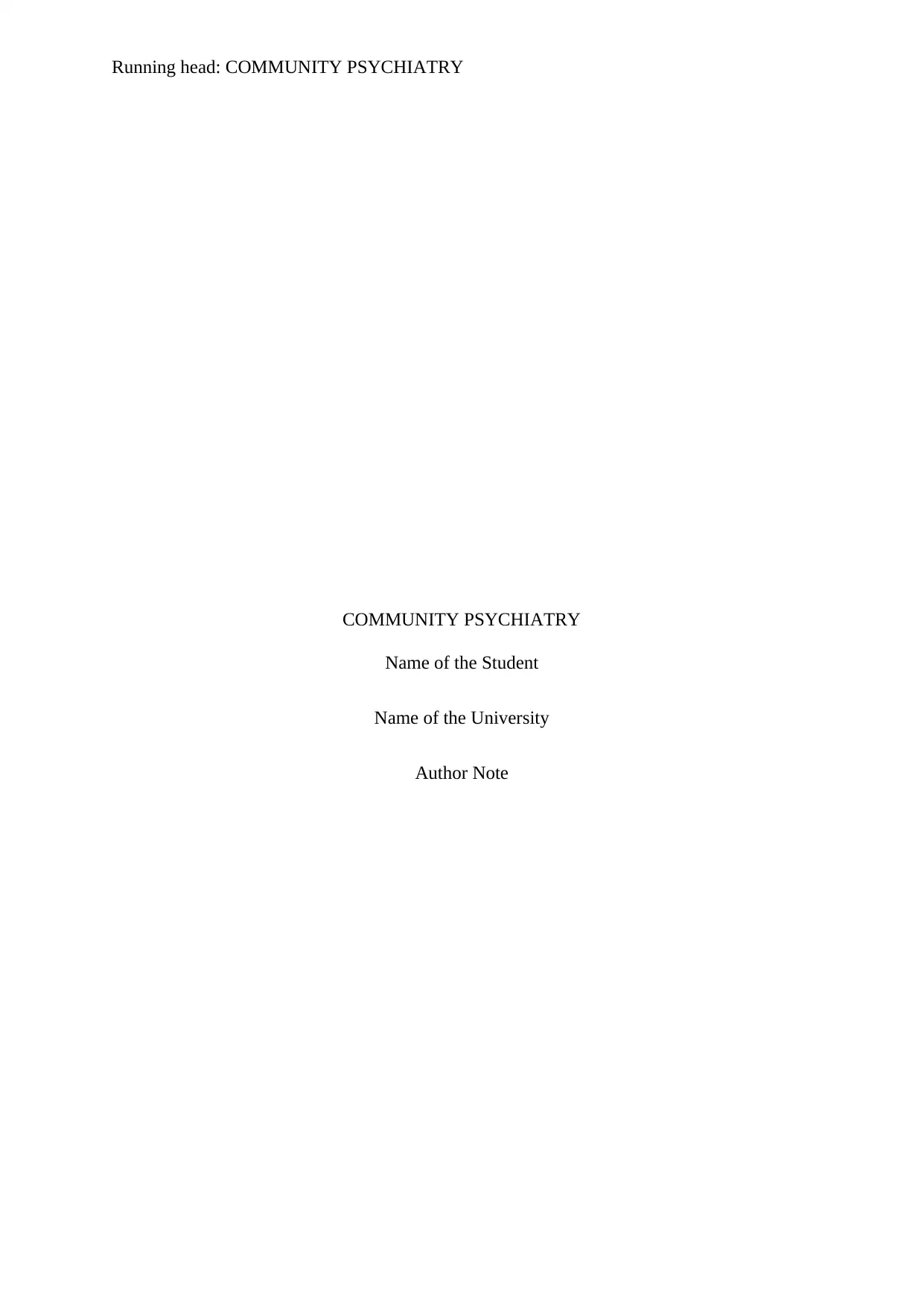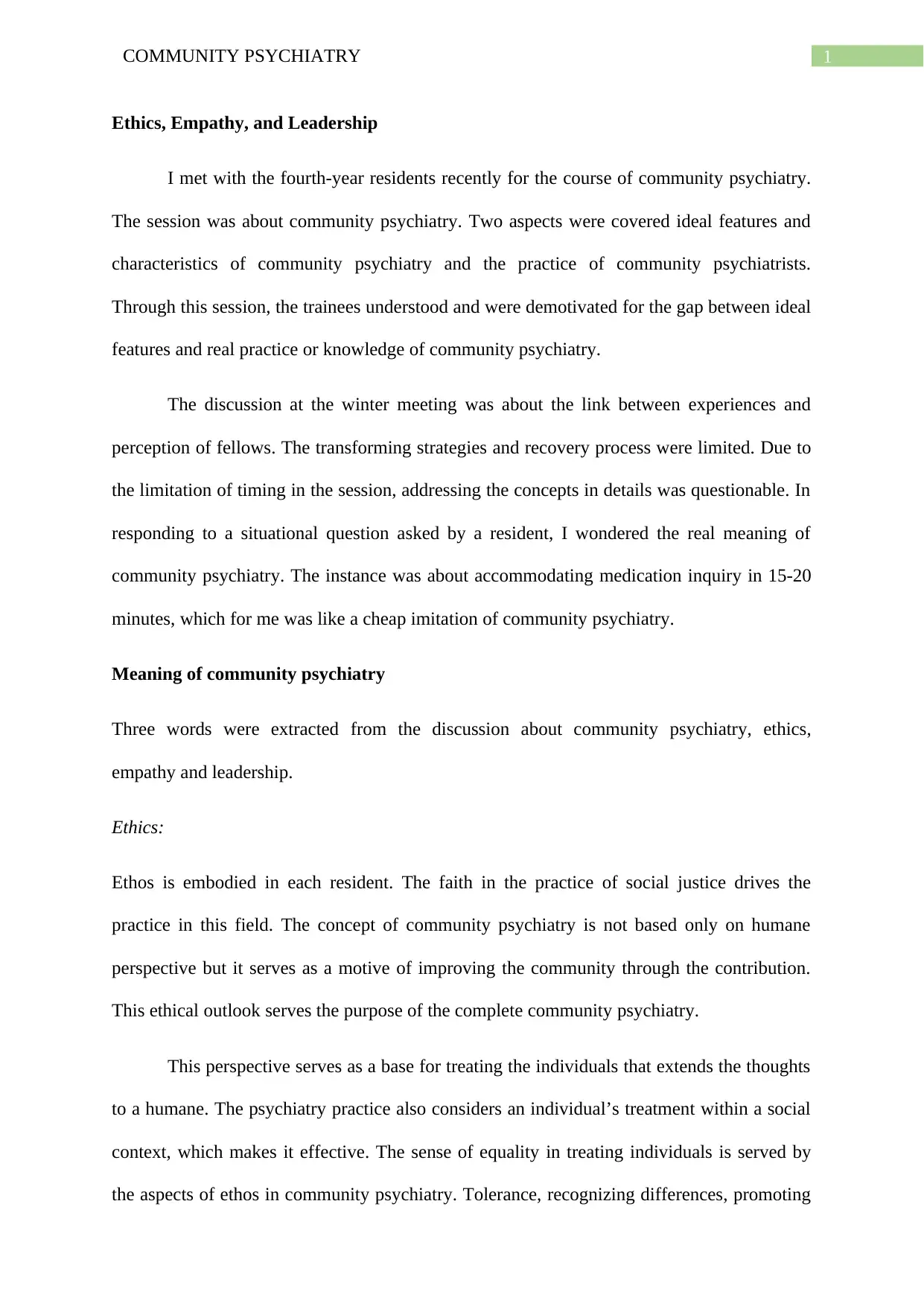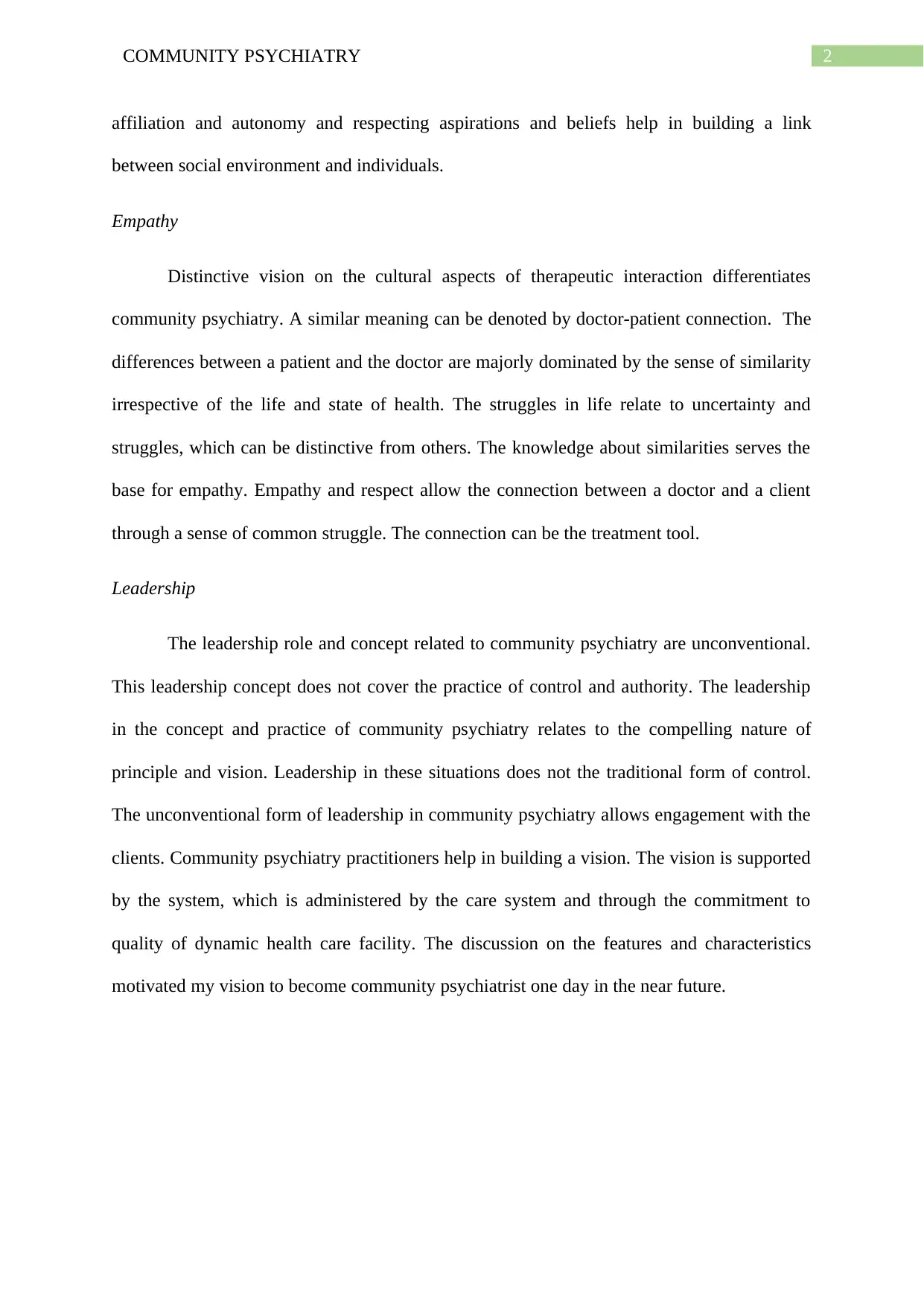Community Psychiatry: Balancing Ideal and Real-World Practice
VerifiedAdded on 2022/08/22
|3
|576
|23
Report
AI Summary
This report examines the core principles of community psychiatry, focusing on the essential roles of ethics, empathy, and leadership. It discusses the gap between the ideal characteristics of community psychiatry and the realities faced by practitioners, particularly in the context of financial constraints and limited resources. The report highlights the importance of ethical considerations, emphasizing social justice and community improvement. It explores the role of empathy in building doctor-patient relationships and understanding diverse cultural perspectives. Additionally, it addresses the unconventional nature of leadership in community psychiatry, which emphasizes vision and engagement rather than traditional control. The report reflects on the author's experience with fourth-year residents and their perceptions of the field, including the limitations in their training and exposure to transformation initiatives. It concludes by motivating the author's aspiration to become a community psychiatrist, demonstrating the critical importance of these principles in providing effective mental healthcare.
1 out of 3





![[object Object]](/_next/static/media/star-bottom.7253800d.svg)